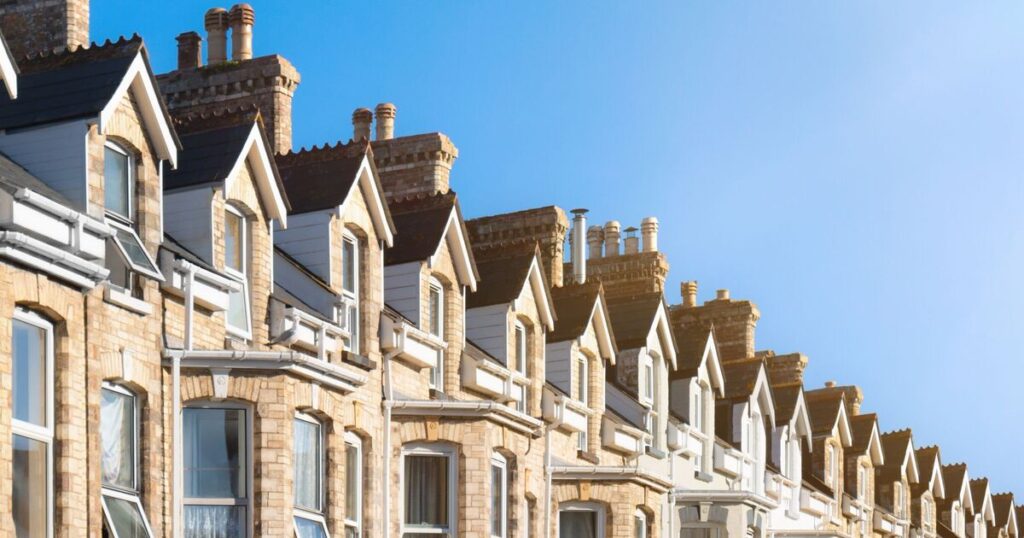
A property specialist has revealed that your property could lose value due to one reason that will be completely outside of your control. Certain house prices can even plummet by as much as 20% due to circumstances outside homeowners’ influence.
Jonathan Christie, CEO of The Property Buying Company, cautions that external elements stemming from adjacent properties often surprise sellers when they choose to list their homes.
The property valuation expert reveals that numerous homeowners stay oblivious to how dramatically neighbouring troubles can impact their sale price until they obtain assessments well below their anticipated figures. His observations emerge as housing market statistics demonstrate growing purchaser focus on area standards alongside conventional considerations such as property dimensions and state.
Jonathan says: “The statistics show that neighbour-related problems can knock significant value off property prices, with unkempt gardens, rubbish-filled driveways and noise problems ranking among the most damaging factors.”
Neglected gardens lead the catalogue of troublesome neighbour concerns, slashing property prices by as much as 20% in certain instances. Houses neighbouring properties with rubbish piles visible from the road may witness values decline by 15-17%.
Jonathan highlights that even apparently trivial matters such as peeling paint or broken windows next door can affect valuations by 5-10%. The expert explains: “What many homeowners fail to realise is that when potential buyers view a property, they’re not just assessing the house itself but the entire street environment. First impressions begin forming before they’ve even stepped through your front door.”
Visible structural issues on adjacent properties can be a major red flag for prospective purchasers.
Jonathan warns: “If a potential buyer spots cracked walls or subsidence issues at the property next door, alarm bells immediately ring. These visible problems suggest potential structural concerns that could eventually spread to the property they’re viewing.”
The study indicates that noise complaints involving neighbours are a significant worry for buyers, with homes embroiled in documented noise disputes potentially seeing their value plummet by as much as 15%.
Boundary disputes are also a cause for concern, with unresolved arguments over property lines possibly leading to a 5-10% decrease in home values and notably longer sale periods.
Jonathan suggests that homeowners worried about issues with neighbouring properties should initially attempt to resolve matters amicably through conversation before resorting to more formal measures.
His advice is clear: “Many neighbour issues can be resolved through open communication. Sometimes people simply aren’t aware their property maintenance is affecting others. A friendly chat can often resolve things without creating tension.”
For more severe situations, Jonathan suggests recording problems and contacting the local authority if initial discussions fail to yield results.
The specialist continues: “Local authorities have powers to address severely neglected properties, particularly when they pose health and safety risks. Environmental health departments can intervene in cases of extreme property neglect.”
Notably, Jonathan observes that the pandemic has increased purchaser consciousness regarding neighbouring property standards, stating: “With more people spending time at home during lockdowns, buyer sensitivity to neighbourhood quality has significantly increased. Working from home means people are much more conscious of their immediate surroundings and potential disturbances.”
The property specialist also emphasises how community planning schemes can beneficially affect house prices in certain localities.
Based on findings released by the Ministry of Housing, Communities and Local Government, areas with engaged planning programmes frequently experience enhanced community unity and environmental standards, which can favourably influence house values.
Jonathan observes: “Communities that take an active role in neighbourhood planning often develop policies around design and character that help maintain the visual appeal of an area. This collective approach to maintaining standards can protect property values across entire streets or neighbourhoods.”
The Ministry of Housing’s latest report underscores the positive impact neighbourhood plans have had on design policy and local priorities, possibly leading to more attractive living spaces.
Jonathan urges house hunters to meticulously investigate local conditions before committing to a purchase, recommending visits to the area at various times to gauge noise and evaluate the maintenance of nearby properties.
The property guru wraps up with sage advice for sellers: “For sellers dealing with problematic neighbours, addressing issues early and being transparent with potential buyers about any ongoing situations is always the best approach. Hiding problems only leads to issues during surveys or viewings, potentially collapsing sales at advanced stages.”
 Latest World Breaking News Online News Portal
Latest World Breaking News Online News Portal






